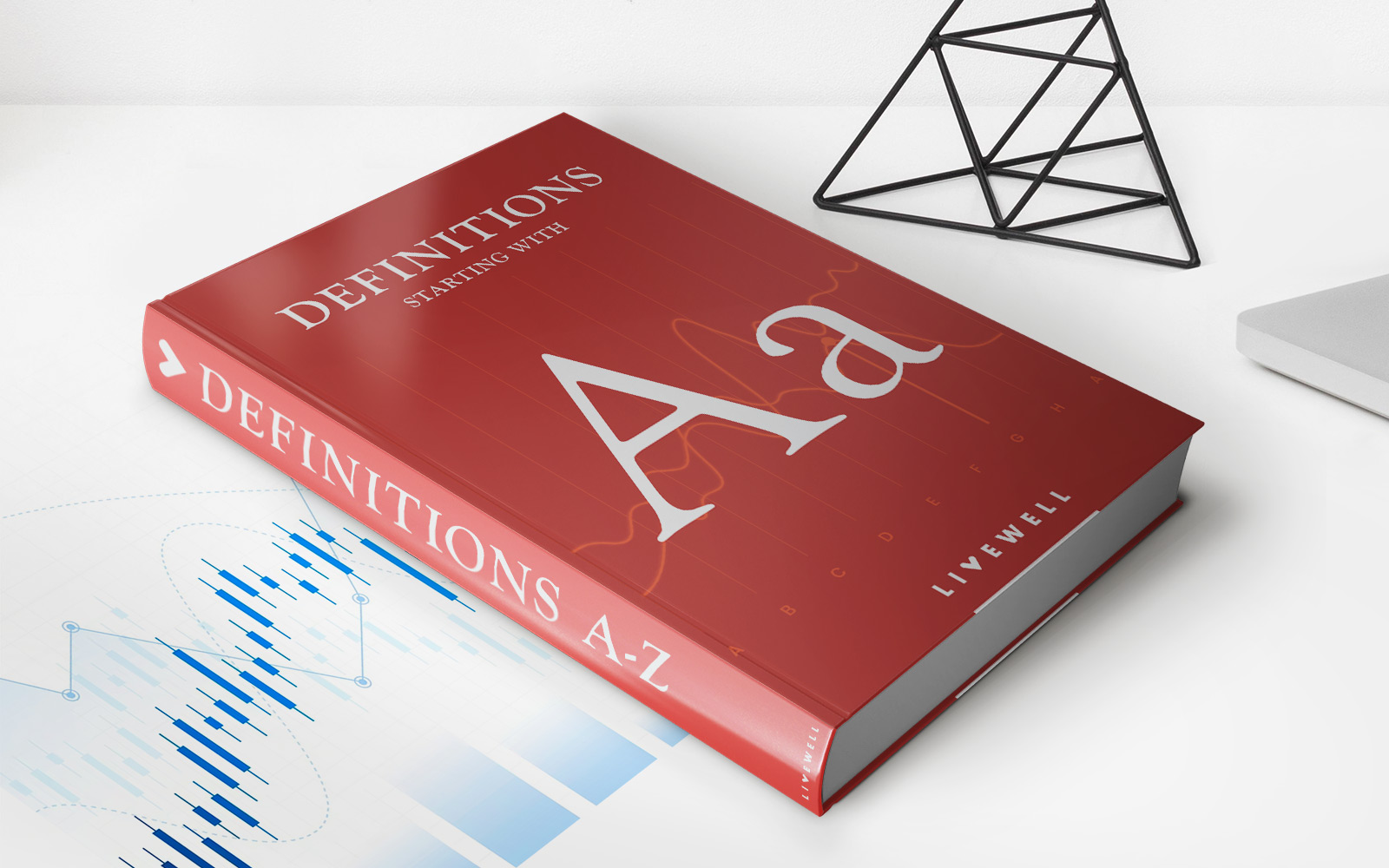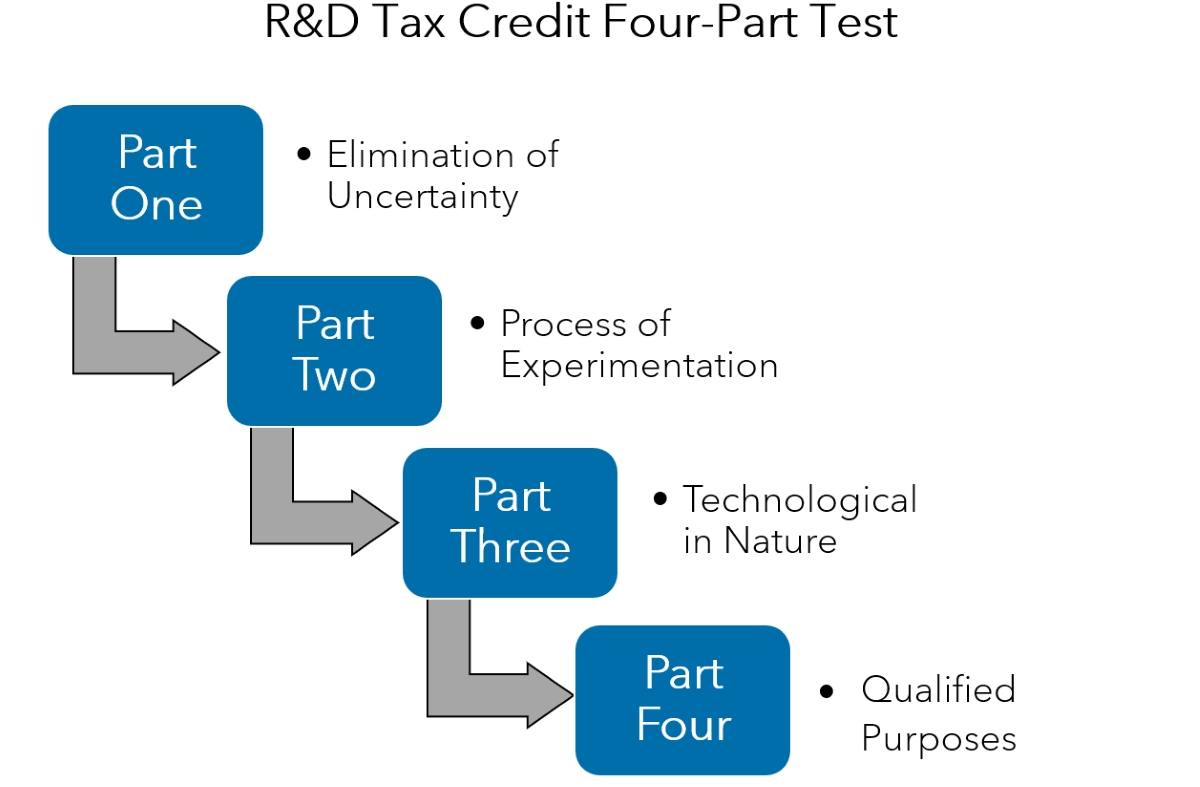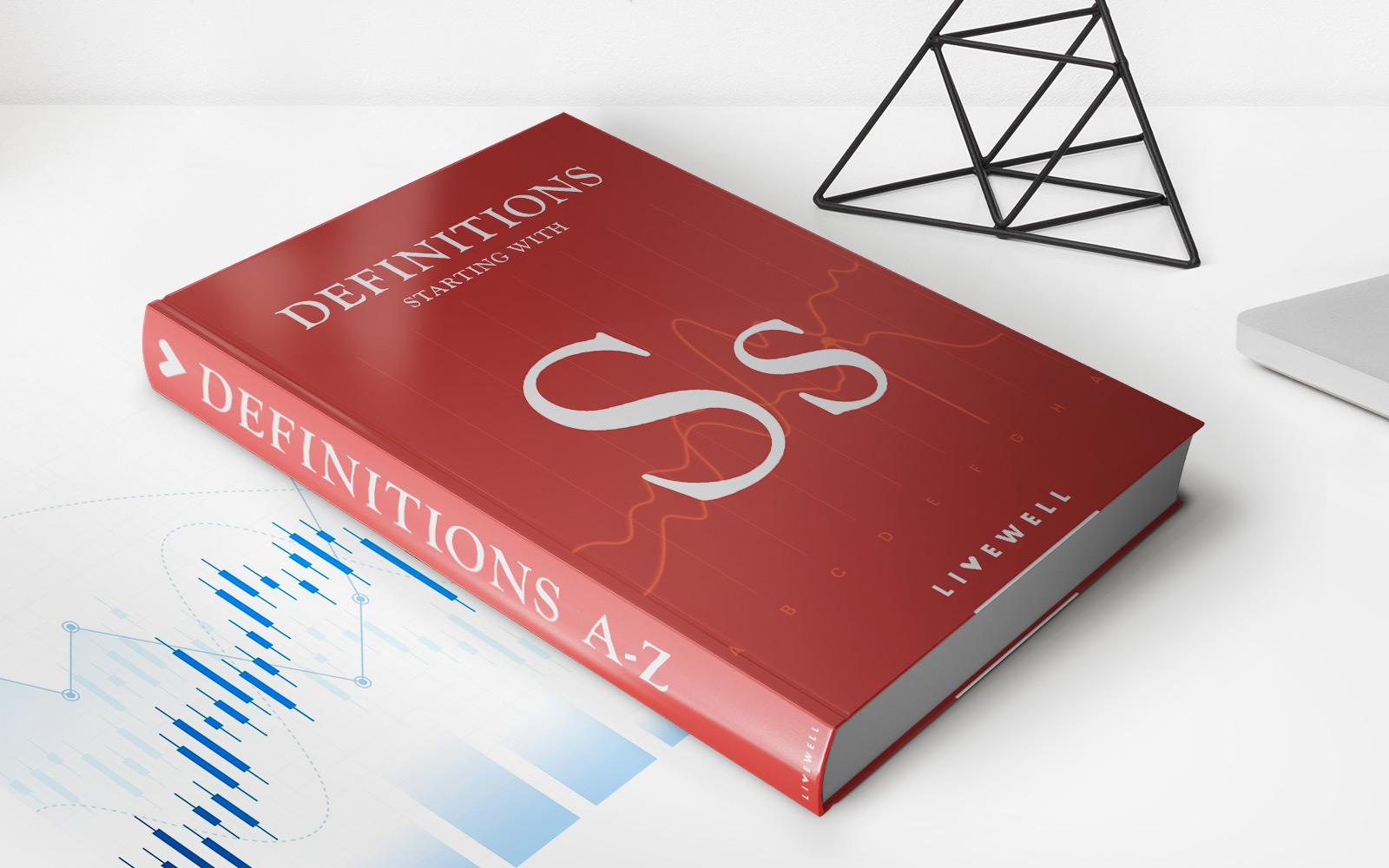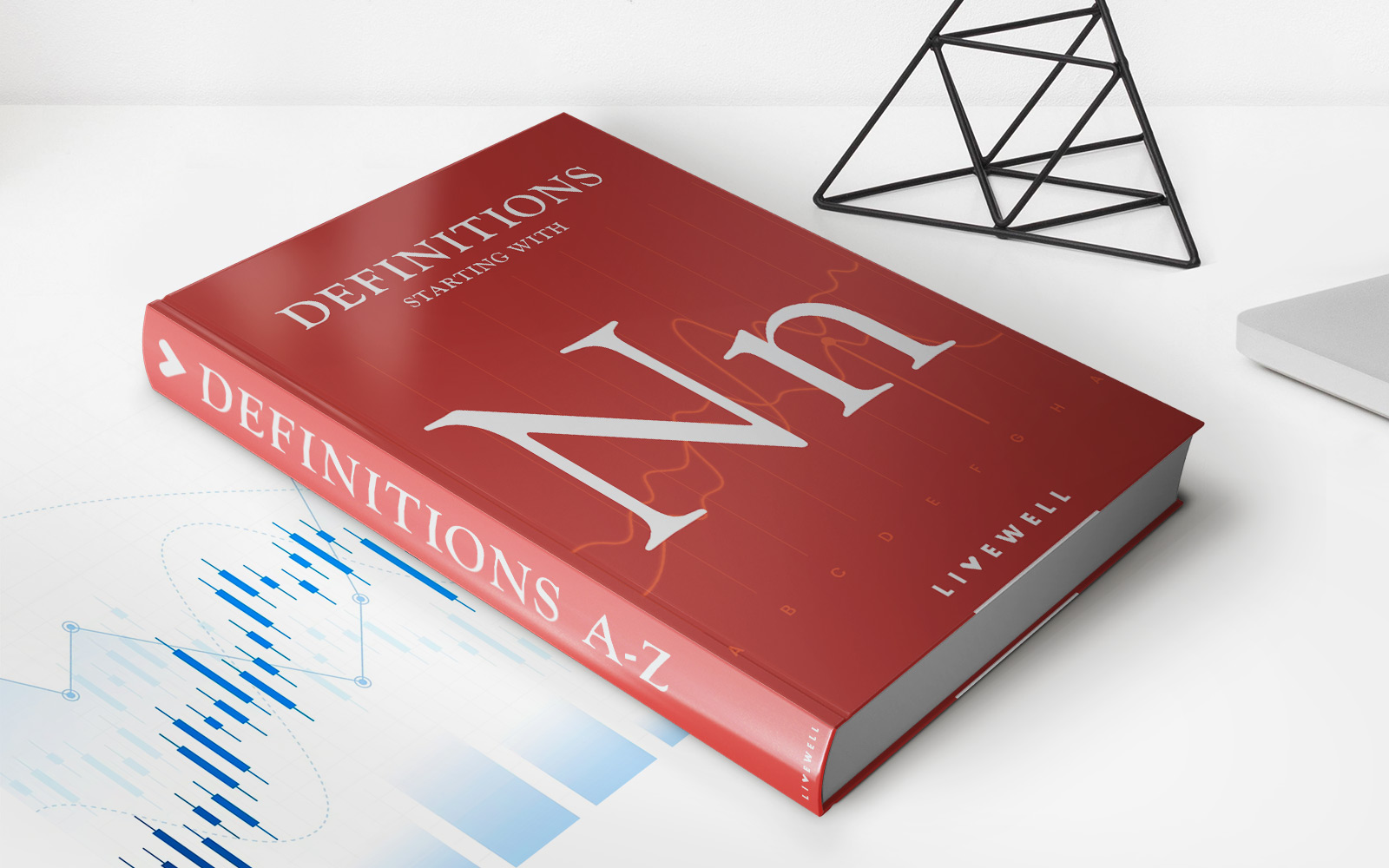

Finance
Who Qualifies For Elderly Tax Credit
Modified: February 21, 2024
Discover who qualifies for the elderly tax credit and how you can save on your finances. Maximize your benefits with expert advice on finance.
(Many of the links in this article redirect to a specific reviewed product. Your purchase of these products through affiliate links helps to generate commission for LiveWell, at no extra cost. Learn more)
Table of Contents
Introduction
As individuals grow older, they may be eligible for various tax benefits and credits designed to ease their financial burdens. One such benefit is the Elderly Tax Credit. This credit is specifically aimed at providing relief to senior citizens who meet specific eligibility criteria.
The Elderly Tax Credit is a valuable financial tool that can help older adults offset their tax liability and potentially receive a refund. Understanding the qualifications for this tax credit is essential for seniors and their families to ensure they are making the most of available resources.
In this article, we will explore the qualifications for the Elderly Tax Credit, including age requirements, income limits, and additional criteria that must be met. We’ll also discuss how to apply for the credit and highlight the benefits it brings to eligible individuals.
Whether you are a senior looking to reduce your tax burden or a caregiver assisting an elderly loved one, understanding the ins and outs of the Elderly Tax Credit can make a significant difference in managing finances and maximizing available tax benefits.
Definition of Elderly Tax Credit
The Elderly Tax Credit is a tax benefit designed to provide financial relief to senior citizens who meet specific qualification criteria. This credit is offered by the government as a means of assisting older adults in managing their tax liability and potentially receiving a refund.
The Elderly Tax Credit is typically based on age, income, and additional qualifications. It is important to note that the eligibility requirements and available credit amount may vary depending on the country or jurisdiction in which the taxpayer resides. Therefore, it is essential for individuals to consult their local tax authority or seek professional advice for specific details.
Through the Elderly Tax Credit, eligible seniors can potentially reduce the amount of taxes they owe or receive a refund. This financial assistance aims to alleviate the tax burden that seniors may face during their retirement years, allowing them to allocate their resources towards other essential needs, such as healthcare, housing, and daily living expenses.
It is crucial to keep in mind that the Elderly Tax Credit is separate from other tax benefits, such as deductions and exemptions. While deductions and exemptions reduce the taxable income amount, the Elderly Tax Credit directly reduces the overall tax liability on a dollar-for-dollar basis.
To take advantage of the Elderly Tax Credit, it is necessary to meet the specified requirements set forth by the tax authorities. These requirements typically include age restrictions, income limits, and additional qualifications, which we will delve into in the following sections.
Age Requirements for Elderly Tax Credit
The Age Requirements for the Elderly Tax Credit determine the minimum age at which individuals become eligible to claim this tax benefit. The specific age threshold varies depending on the country or jurisdiction in which the taxpayer resides.
Generally, the age requirement for the Elderly Tax Credit starts at 65 years old. This means that individuals who have reached their 65th birthday are typically eligible to claim the credit. However, it’s important to note that some regions may have different age thresholds, such as 60 or 62, so it’s crucial to consult the local tax authority or seek professional advice for accurate and up-to-date information.
It’s important to mention that the age requirement is based on the taxpayer’s age during the tax year for which they are filing their return. In other words, if an individual turns 65 during the tax year, they are considered eligible for the Elderly Tax Credit for that specific year.
It’s also worth noting that some jurisdictions may have additional age-related provisions for the Elderly Tax Credit. For example, certain countries may offer a higher credit amount for individuals who are considered “elderly” based on a different age threshold, such as 75 or 80 years old.
Meeting the age requirement is the first step in qualifying for the Elderly Tax Credit. However, it’s important to understand that age alone is not the sole determining factor. Income limits and additional qualifications may also need to be met, which we’ll explore in the following sections.
Income Limits for Elderly Tax Credit
The Income Limits for the Elderly Tax Credit establish the maximum amount of income an individual can earn while still being eligible to claim this tax benefit. These limits are put in place to ensure that the credit is targeted towards individuals who may require financial assistance during their retirement years.
The specific income limits for the Elderly Tax Credit can vary significantly depending on the jurisdiction and tax regulations in place. Generally, these limits are set to accommodate individuals with lower to moderate incomes. Higher-income individuals may not qualify for the credit or may have a reduced credit amount.
It’s important to note that the income limits for the Elderly Tax Credit are typically defined as Adjusted Gross Income (AGI), which takes into account various types of taxable income, deductions, and exemptions. AGI serves as a measure of an individual’s overall income after certain adjustments have been made.
For example, in some jurisdictions, the income limits for the Elderly Tax Credit may be based on a sliding scale, where lower income levels receive a higher credit amount, and the credit gradually decreases as income increases. This ensures that individuals with the greatest financial need receive greater tax relief.
Income limits can also vary depending on the filing status of the taxpayer. For instance, married couples filing jointly may have different income limits compared to single individuals or heads of household.
It is crucial for taxpayers to consult their local tax authority or seek professional advice to determine the specific income limits for their jurisdiction and filing status. This will allow individuals to determine their eligibility for the Elderly Tax Credit and plan their finances accordingly.
It’s worth noting that even if an individual exceeds the income limits for the Elderly Tax Credit, they may still be eligible for other tax benefits or deductions, so exploring all available options is essential.
Additional Qualifications for Elderly Tax Credit
In addition to meeting the age requirement and income limits, there may be additional qualifications that individuals must satisfy to be eligible for the Elderly Tax Credit. These qualifications can vary depending on the country or jurisdiction in which the taxpayer resides.
One common additional qualification is residency. Typically, individuals must be legal residents or citizens of the country to claim the Elderly Tax Credit. This ensures that the benefit is directed towards individuals who are living and contributing to the local economy.
Another qualification that may be required is dependency. Some jurisdictions offer a higher credit amount for individuals who are financially dependent on others, such as adult children or family members. This calculation is based on the level of financial support provided and the relationship between the taxpayer and the dependent.
Health conditions may also play a role in determining eligibility for the Elderly Tax Credit in some cases. Certain countries provide additional tax benefits or credits for individuals with specific medical conditions or disabilities. These credits are designed to offer financial support to those who may have higher healthcare expenses or require additional assistance.
Furthermore, there may be restrictions on the type of income that qualifies for the Elderly Tax Credit. For example, certain investment income or pension distributions may be excluded from the calculation of eligibility. Understanding these restrictions can help taxpayers accurately determine their qualification for the credit.
It’s important to remember that the additional qualifications for the Elderly Tax Credit can vary significantly depending on the jurisdiction. It is essential to consult the local tax authority or seek professional advice to obtain accurate and up-to-date information on the specific requirements that apply.
By understanding and satisfying these additional qualifications, individuals can ensure they meet all the necessary criteria to claim the Elderly Tax Credit and maximize their tax benefits and potential refunds.
How to Apply for Elderly Tax Credit
Applying for the Elderly Tax Credit requires careful attention to detail and adherence to the specific procedures set by the tax authorities. While the exact process may vary depending on the jurisdiction, the following general steps outline how to apply for this tax benefit:
- Gather necessary documents: Begin by collecting all the required documents to support your application. This may include proof of age, such as a birth certificate or passport, as well as income statements and any additional documentation specified by the tax authority.
- Review eligibility criteria: Familiarize yourself with the eligibility criteria for the Elderly Tax Credit. Ensure that you meet the age requirements, income limits, and any other additional qualifications specified by your jurisdiction.
- Fill out tax forms: Complete the appropriate tax forms for claiming the Elderly Tax Credit. These forms may be specific to the credit or part of the general tax return filing process. Follow the instructions provided and accurately enter the necessary information.
- Attach supporting documents: Include all the required supporting documents with your tax forms. This may include copies of identification documents, income statements, and any other documents requested by the tax authority.
- Submit your application: Once you have completed the tax forms and attached the necessary documents, submit your application to the appropriate tax authority. This can typically be done electronically through an online portal or by mailing the documents to the designated address.
- Monitor your application: Keep track of your application’s progress. If you submitted it electronically, check for updates or notifications from the tax authority. If you mailed your application, consider sending it via certified mail to have proof of delivery.
- Follow up if necessary: If you don’t receive any communication from the tax authority within a reasonable timeframe, consider following up on the status of your application. Contact the appropriate department or seek guidance from a tax professional to ensure your application is being processed.
It’s important to note that the application process for the Elderly Tax Credit may have specific deadlines. Be sure to determine the filing deadline for your jurisdiction and submit your application in a timely manner.
Seeking assistance from a tax professional or consulting the local tax authority can be beneficial throughout the application process. They can provide guidance, answer any questions you may have, and ensure you are completing the necessary steps accurately and efficiently.
Benefits of Elderly Tax Credit
The Elderly Tax Credit offers a range of benefits to eligible individuals, providing important financial support during their retirement years. These benefits can have a significant impact on seniors’ overall financial well-being. Here are some advantages of the Elderly Tax Credit:
- Reduced tax liability: The primary benefit of the Elderly Tax Credit is the ability to reduce the amount of taxes owed. This credit directly lowers the tax liability on a dollar-for-dollar basis, potentially resulting in a lower tax bill or even a refund.
- Financial relief: Seniors often face various financial challenges during retirement, such as medical expenses, housing costs, and daily living expenses. The Elderly Tax Credit provides financial relief by lowering the tax burden, allowing individuals to allocate their resources towards essential needs and improving their overall financial stability.
- Increased income: By reducing the amount of taxes owed, the Elderly Tax Credit effectively increases the disposable income available to eligible individuals. This extra income can be used to cover additional expenses, create savings, or enhance the overall quality of life during retirement.
- Support for low-income seniors: The Elderly Tax Credit is often designed to target low-income seniors who may have limited financial resources. By providing them with a tax credit, the government aims to alleviate their financial strain and ensure a certain level of financial stability during their later years.
- Healthcare affordability: For jurisdictions that offer additional health-related tax credits, the Elderly Tax Credit can help offset the high costs of healthcare and health insurance for seniors. This allows eligible individuals to access necessary medical services and medications without straining their budgets.
- Maximizing available resources: The Elderly Tax Credit, when combined with other tax benefits and deductions, allows seniors to maximize their available resources. By strategically utilizing these tax benefits, individuals can ensure they are making the most of their financial opportunities, potentially saving significant amounts on their tax obligations.
- Peace of mind: Knowing that there is financial support available through the Elderly Tax Credit can provide seniors and their families with peace of mind. This benefit offers reassurance that there are government programs in place to assist individuals in their later years and helps alleviate concerns about financial uncertainty.
It’s important to remember that the specific benefits and credit amounts of the Elderly Tax Credit can vary depending on the jurisdiction. To fully understand the advantages available, individuals should consult their local tax authority or seek professional advice to get accurate and up-to-date information on the benefits they are eligible to receive.
Conclusion
The Elderly Tax Credit is a valuable financial resource for seniors, offering important benefits and support during their retirement years. By understanding and meeting the eligibility criteria, individuals can take advantage of this tax credit to reduce their tax liability, increase their disposable income, and improve their overall financial well-being.
From age requirements to income limits and additional qualifications, it is crucial for individuals to familiarize themselves with the specific provisions set by the tax authorities in their jurisdiction. Consulting with the local tax authority or seeking professional advice can provide clarity and ensure accurate filing and compliance.
Applying for the Elderly Tax Credit requires careful attention to detail, gathering necessary documents, and accurately completing the required tax forms. It is important to adhere to the specified deadlines and monitor the progress of the application to ensure timely processing.
The benefits of the Elderly Tax Credit extend beyond just reducing tax liability. It provides financial relief, increases income, supports low-income seniors, enhances healthcare affordability, and helps individuals maximize available resources. These advantages contribute to the overall financial stability and peace of mind for eligible seniors and their families.
As with any tax-related matter, it is crucial to stay informed about changes in tax laws and regulations that may impact eligibility and benefits. Staying up to date and seeking guidance from tax professionals can ensure individuals make the most of available tax benefits and credits.
In conclusion, the Elderly Tax Credit plays a vital role in supporting the financial well-being of senior citizens. By understanding and meeting the eligibility criteria, seniors can take advantage of this tax benefit, alleviate financial burdens, and enjoy a more secure and comfortable retirement.














